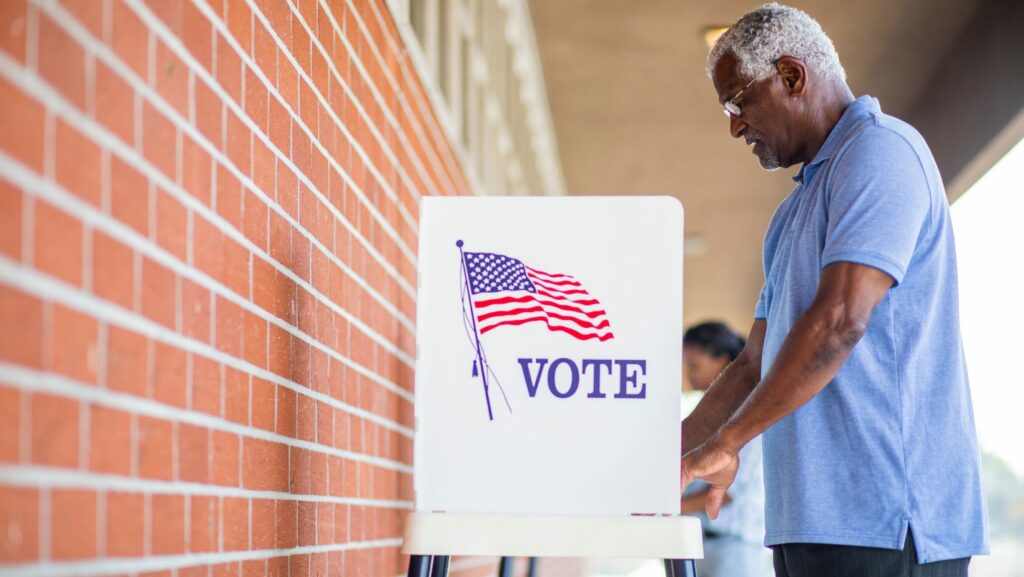In the ever-evolving landscape of American politics, the rise of independent voters has become a defining trend. These individuals, often unaffiliated with the major political parties, play a crucial role in shaping election outcomes. But what does it truly mean to be an independent voter in today’s political climate?
independent voters often prioritize critical issues over ideological alignment. They may shift support between different parties across various elections, reflecting a focus on what they deem most important at the time. This makes them unpredictable and influential in closely contested races, where their votes can sway the outcome.
Independent voters are characterized by their flexibility and open-mindedness, often prioritizing issues over party loyalty. They navigate the political spectrum with a discerning eye, evaluating candidates and policies based on merit rather than partisan allegiance. This approach allows them to adapt to changing political dynamics and influence the direction of national discourse.
As the number of independent voters continues to grow, their impact on elections and policy-making becomes increasingly significant. Understanding their motivations and perspectives is essential for grasping the complexities of modern democracy. By exploring what it means to be an independent voter, one gains insight into a pivotal force shaping the future of American politics.
What Does It Mean To Be An Independent Voter
 Being an independent voter signifies a detachment from the traditional two-party system. These voters don’t register with a specific political party and often choose candidates based on individual qualities and policy positions rather than party affiliation. This independence allows them to evaluate each election cycle on its own merits, considering current issues and candidates’ proposed solutions.
Being an independent voter signifies a detachment from the traditional two-party system. These voters don’t register with a specific political party and often choose candidates based on individual qualities and policy positions rather than party affiliation. This independence allows them to evaluate each election cycle on its own merits, considering current issues and candidates’ proposed solutions.
Independent voters often prioritize critical issues over ideological alignment. They may shift support between different parties across various elections, reflecting a focus on what they deem most important at the time. This makes them unpredictable and influential in closely contested races, where their votes can sway the outcome.
The rise of independent voters impacts political strategies, compelling parties to address a broader range of concerns. Politicians may need to adopt more centrist positions or issue-specific platforms to appeal to this segment. Understanding the motivations of independent voters becomes essential for campaign success and navigating the evolving political landscape.
Characteristics of Independent Voters
 Independent voters distinguish themselves through unique political ideologies and beliefs that aren’t rigidly tied to a party.
Independent voters distinguish themselves through unique political ideologies and beliefs that aren’t rigidly tied to a party.
Independent voters often possess diverse political ideologies that resist categorization into partisan lines. They prioritize specific issues over traditional party platforms, showcasing a pragmatic approach. Many independents balance conservative and liberal beliefs, assessing policies based on personal impact and societal benefit. This blend of views enables them to support candidates from different parties, depending on current political conditions and policy offerings. Through this individualized evaluation, independent voters assert their influence by challenging prevailing political narratives and encouraging adaptive policy proposals.
The Role of Independent Voters in Elections
 Independent voters play a pivotal role in shaping the political landscape by challenging traditional party dynamics and promoting a more issue-focused approach. Their ability to sway election outcomes through their flexible and pragmatic voting patterns makes them a force to be reckoned with. As political parties strive to capture their attention and support, the influence of independent voters continues to grow. They drive the need for adaptive strategies that prioritize policy over party allegiance. Understanding this diverse and dynamic group is essential for navigating the complexities of contemporary democracy and ensuring that the political system remains responsive to the needs of all constituents.
Independent voters play a pivotal role in shaping the political landscape by challenging traditional party dynamics and promoting a more issue-focused approach. Their ability to sway election outcomes through their flexible and pragmatic voting patterns makes them a force to be reckoned with. As political parties strive to capture their attention and support, the influence of independent voters continues to grow. They drive the need for adaptive strategies that prioritize policy over party allegiance. Understanding this diverse and dynamic group is essential for navigating the complexities of contemporary democracy and ensuring that the political system remains responsive to the needs of all constituents.



